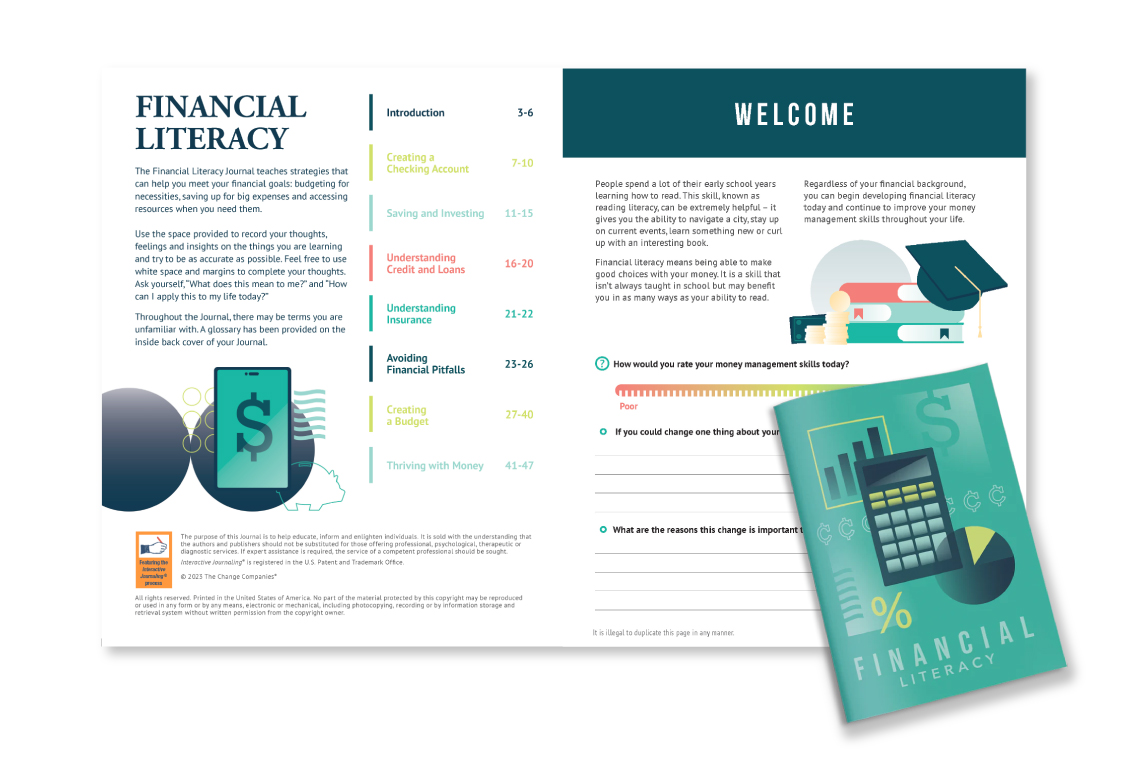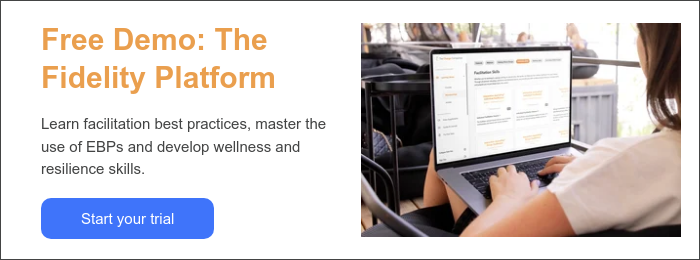Introducing the Financial Literacy Curriculum

The benefits of financial literacy
Financial literacy includes not only knowledge of financial concepts and risks, but also the skills and confidence to apply this knowledge to make effective decisions and to improve financial well-being.1 Despite the fundamental need for and value of this knowledge, the number of American adults who have a fundamental financial understanding has been measured at just 30%.2
Research has shown that, independent of socioeconomic class, financial literacy is essential for achieving financial security.3 Justice-involved populations and those struggling with behavioral and mental health challenges are just a few groups acutely affected by this barrier.

About the Financial Literacy Journal
The Financial Literacy Journal from The Change Companies teaches strategies that can help participants meet their financial goals, including budgeting for necessities, saving up for big expenses and accessing resources. Participants consider the ways they have managed their money in the past and learn strategies that can help them in the future. The program offers opportunities for practice, application and hands-on learning while boosting participants’ confidence and skills.
In this Journal, participants progress through the following key concepts and objectives:
- Considering beliefs about money
- Exploring benefits of financial literacy
- Creating a checking account
- Using online banking
- Strategies for saving
- Investing in the future
- Understanding credit and loans
- Managing debt
- Understanding types of insurance
- Recognizing and avoiding financial pitfalls
- Setting SMART financial goals
- Creating a budget
- Changing spending habits
- Tracking finances
- Accessing resources
- Strategies for thriving with money
This curriculum consists of a single Journal and accompanying Facilitator Guide. It provides a thorough, beginner to intermediate introduction to financial literacy. The Facilitator Guide includes key concepts and references, role play and discussion activities and an overview of the evidence-based underpinnings of the curriculum design.
Who can use Financial Literacy?
The applications of the Financial Literacy Journal are many. This curriculum is a great fit for reentry programs, community supervision, life skills programs or as a component of individualized planning in behavioral health treatment settings.
References
1 The Organisation for Economic Co-operation and Development (OECD) and its International Network on Financial Education (INFE). https://www.oecd.org/financial/education/
2 Lusardi, A. Financial literacy and the need for financial education: evidence and implications. Swiss J Economics Statistics 155, 1 (2019). https://doi.org/10.1186/s41937-019-0027-5
3 Lusardi, A., Michaud, P. C., & Mitchell, O. S. (2017). Optimal financial knowledge and wealth inequality. Journal of Political Economy, 125(2), 431–477.



